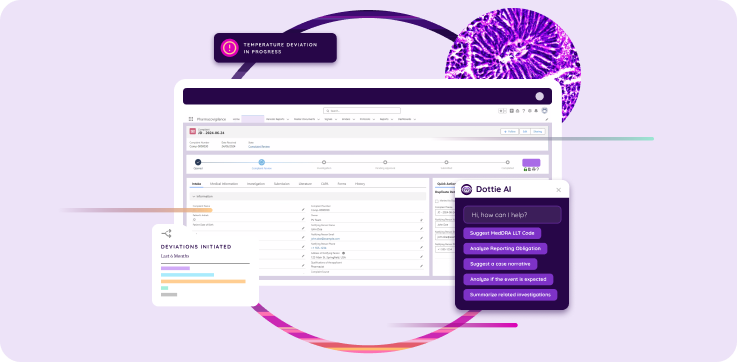QMS Selection Checklist: 15 Questions to Ask Before You Buy

Choosing the right Quality Management System (QMS) is a critical step in ensuring compliance, maintaining product quality, and enabling growth. With regulatory expectations evolving and technology advancing, the QMS you choose must align with both current and future operational needs. Whether you’re upgrading from a paper-based system or switching from another vendor, the following checklist outlines 15 essential questions to ask before you buy.
1. Does the vendor specialize in life sciences?
A QMS built specifically for life sciences will be aligned with GxP requirements, validation needs, and regulatory expectations. Vendors with deep domain experience understand industry-specific challenges like change control, audit readiness, and electronic records compliance.
2. Is the system pre-validated and compliant with global regulations?
Ask if the QMS is delivered with validation documentation and whether it complies with standards like:
- 21 CFR Part 11
- EU Annex 11
- ISO 13485
- ISO 9001
Pre-validation can significantly reduce implementation timelines and internal resource needs.
3. What quality processes are included out of the box?
Review whether core quality processes are available and ready to use:
- Corrective and preventive action (CAPA)
- Deviations
- Complaints
- Change control
- Audit management
- Training
- Document control
Make sure the system supports your current processes and has room to grow with your business.
4. Can the system scale with your organization?
Your QMS should be flexible enough to support future growth, whether that’s global expansion, multiple manufacturing sites, or new product lines. Consider multi-site capabilities, language support, and user scalability.
5. What is the implementation timeline and approach?
Time to value is important. Ask how long implementation takes, what’s included in the onboarding process, and how project milestones are managed. Look for vendors who can implement quickly.
6. What level of customer support is offered?
Post-implementation support can affect long-term success. Understand what support is included—24/7 availability, dedicated customer success, SLAs, and escalation paths. Some vendors also offer managed services or validation support.
7. Is the system configurable without custom code?
Your team should be able to make changes, such as updating workflows or modifying forms, without relying on developers or external consultants. Ask about low-code or no-code capabilities for internal flexibility.
8. Can you access and analyze data easily?
A good QMS should offer built-in dashboards, reporting tools, and audit trails. Look for:
- Configurable reports
- KPI tracking
- Audit logs
- Exportable data
Real-time insights help with audit readiness and continuous improvement.
9. Does the system integrate with your other platforms?
A QMS should not operate in isolation. Ask about integration with:
- ERP systems (e.g., SAP, Oracle)
- LIMS or MES platforms
- Training systems
- External document repositories
API availability and native integrations can streamline operations and reduce manual work.
10. What’s the vendor’s product roadmap and pace of innovation?
Choose a vendor committed to continuous improvement. Ask about upcoming features, AI/ML capabilities, and how frequently the system is updated. Ensure your QMS won’t become outdated.
11. Is the platform secure and cloud-based?
Security is critical in regulated environments. Confirm:
- Cloud deployment on platforms like Salesforce
- ISO 27001 or SOC 2 compliance
- Role-based access controls
- Data encryption at rest and in transit
12. Can you conduct remote and hybrid audits?
With today’s remote working environment, audit flexibility is key. Ask whether the system supports digital signatures, centralized document access, and secure collaboration during audits.
13. Does the vendor provide training and documentation?
End-user adoption depends on clear onboarding materials and training. Confirm the availability of:
- User guides
- Video tutorials
- Live or virtual training sessions
- Knowledge base access
14. Are customers satisfied with the system?
Ask for customer references, G2 reviews, or case studies. Look for success stories in pharma, biotech, or medical devices that reflect your organization’s size and needs.
15. What is the total cost of ownership?
Look beyond the license fee. Consider:
- Implementation services
- Validation costs
- Support fees
- Training and onboarding
- Long-term maintenance
Transparent pricing helps avoid unexpected costs later.
Make the Right Choice for the Long Term
Selecting a QMS is a long-term investment that can directly impact compliance, efficiency, and product quality. This checklist gives you a starting point to evaluate vendors with confidence and ask the right questions. Make sure the system you choose fits your organization’s needs today and is able to scale to meet future needs.
Need help evaluating systems? Reach out today to speak to an expert.



